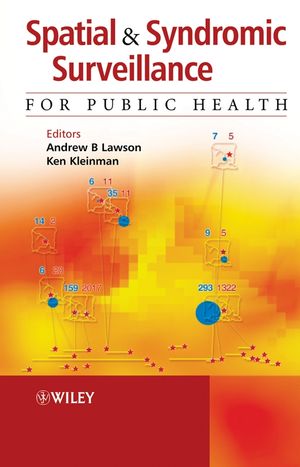Spatial and Syndromic Surveillance for Public HealthISBN: 978-0-470-09248-4
Hardcover
272 pages
May 2005
 This is a Print-on-Demand title. It will be printed specifically to fill your order. Please allow an additional 10-15 days delivery time. The book is not returnable.
|
||||||
Following the events of 9/11 and in the current world climate,
there is increasing concern of the impact of potential bioterrorism
attacks. Spatial surveillance systems are used to detect changes in
public health data, and alert us to possible outbreaks of disease,
either from natural resources or from bioterrorism attacks.
Statistical methods play a key role in spatial surveillance, as
they are used to identify changes in data, and build models of that
data in order to make predictions about future activity.
This book is the first to provide an overview of all the current key methods in spatial surveillance, and present them in an accessible form, suitable for the public health professional. It features an abundance of examples using real data, highlighting the practical application of the methodology. It is edited and authored by leading researchers and practitioners in spatial surveillance methods.
- Provides an overview of the current key methods in spatial surveillance of public health data.
- Includes coverage of both single and multiple disease surveillance.
- Covers all of the key topics, including syndromic surveillance, spatial cluster detection, and Bayesian data mining.



